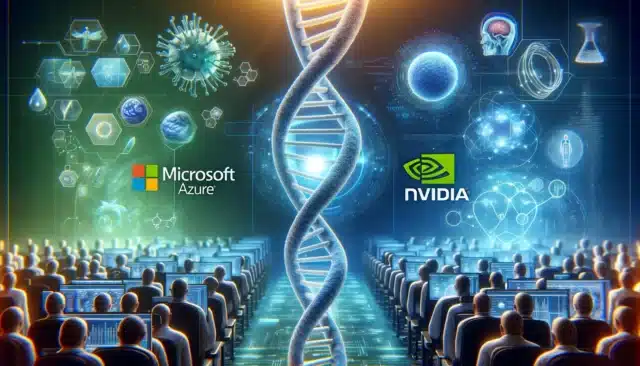Microsoft and NVIDIA partner to accelerate healthcare innovation with generative AI and cloud computing

Microsoft is deepening its partnership with NVIDIA to harness the power of generative AI, cloud computing, and accelerated computing for the healthcare and life sciences sectors. This collaboration aims to merge Microsoft Azure's extensive capabilities with NVIDIA DGX Cloud and the NVIDIA Clara suite to spur innovation and enhance patient care in these fields.
The collaboration is set to provide healthcare providers, pharmaceutical companies, and medical device developers with the tools to rapidly innovate across various domains, including clinical research and drug discovery, with increased efficiency and effectiveness.
ALSO READ: Introducing NVIDIA Blackwell: Transforming AI with trillion-parameter models
One key initiative is the integration of NVIDIA BioNeMo on NVIDIA DGX Cloud, hosted on Microsoft Azure, which aims to expedite AI model development and deployment for drug discovery. BioNeMo's generative AI platform is designed to enhance the speed and precision of identifying potential drug candidates, potentially leading to quicker access to life-saving therapies.
The partnership also focuses on enhancing clinical research and care delivery through imaging-based AI diagnostic technology, leveraging Microsoft Azure, NVIDIA MONAI, and the Nuance Precision Imaging Network. This collaboration is expected to enable the development and deployment of medical imaging AI models at scale, improving the efficiency of research data preparation and AI model training.
In the realm of genomics analysis, the collaboration involves the SOPHiA DDM Platform on Azure, powered by NVIDIA Parabricks, to provide a comprehensive and scalable whole-genome analytical solution. This initiative aims to leverage the combined expertise in technology and genomics to support healthcare institutions in obtaining actionable insights from genomic data.
Microsoft also plans to make a future suite of NVIDIA healthcare microservices available on Azure AI for optimized inference and fine-tuning, democratizing AI adoption for healthcare professionals and driving innovation in patient care.
How do you think these advancements in AI and cloud computing will shape the landscape of medical innovation?
